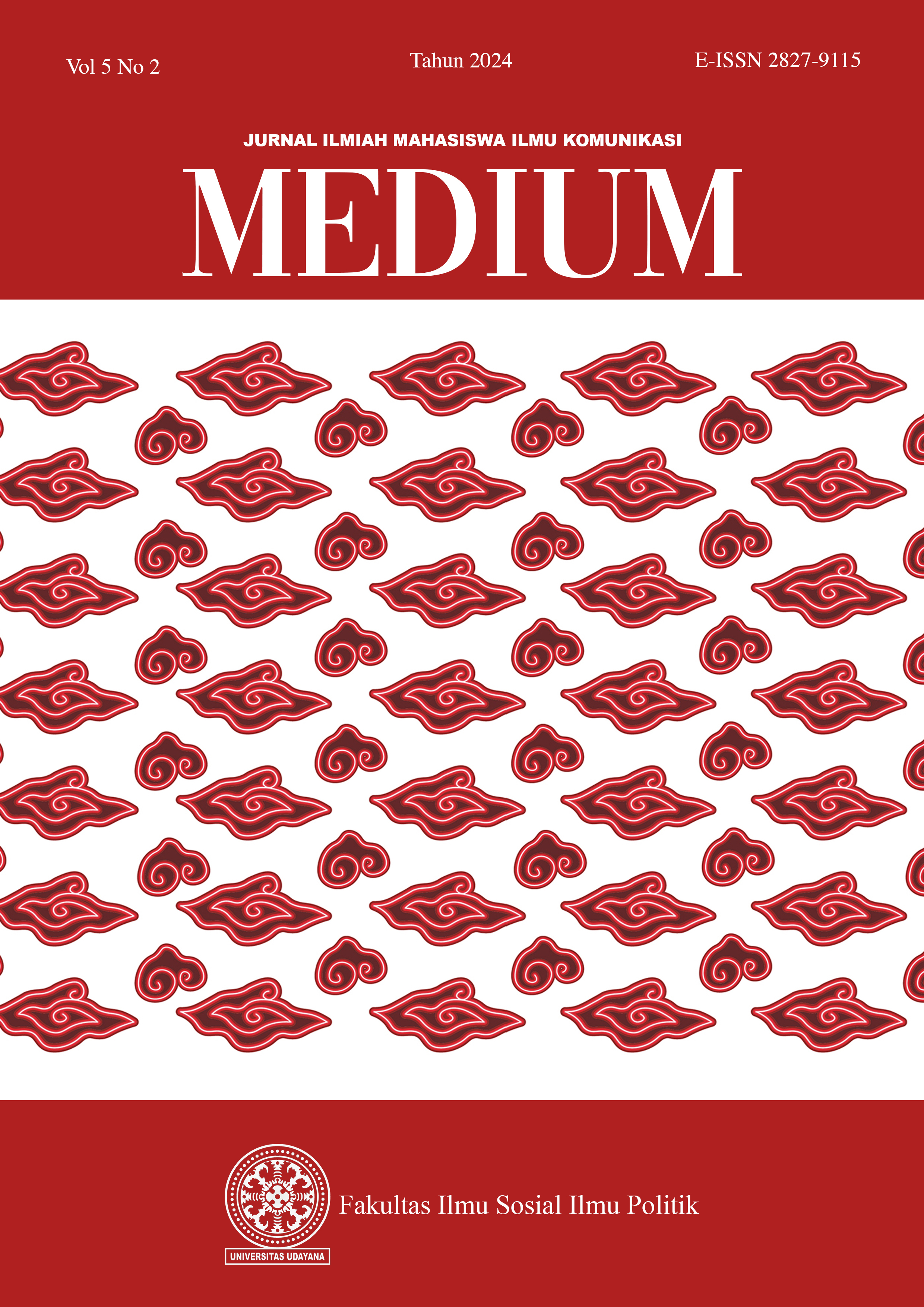MAKNA SIMBOL KOMUNIKASI TANDINGAN SATE (STUDI KASUS PADA PROSESI NGEJOT TANDINGAN SATE DI DESA BEDULU)
Abstract
"Ngejot" or "Jotan" is a tradition in Bali in the form of an offering after cooking and also as part of a ceremonial ritual for family members, relatives, neighbors, and the surrounding community. The use of symbols in every aspect of community life, including in traditional ceremonies, can stimulate thought. The symbols that emerge are interconnected, creating new meanings. In this research, the quantity of "sate jotan" (skewered meat offerings) becomes a form of symbolic communication in the Bedulu village community. The researcher aims to understand the meaning of opposing communication symbols in the "ngejot" procession in the Bedulu Village. The researcher employs Roland Barthes' semiotic analysis to support the research process. The researcher also seeks to deeply explain the phenomenon of the opposing "sate jotan" procession, thus making this a qualitative study. The primary data source utilized by the researcher includes in-depth interviews and non-participant observations conducted by the researcher with the informants. The results of this research show that the "ngejot" tradition in the Bedulu village is capable of conveying symbolic communication meanings given by the ceremony organizers to the recipients of "jotan". Through the "ngejot" procession, the Bedulu village community that receives these offerings interprets them as invitations to attend and assist the giver of "jotan" in conducting their traditional or religious ceremonies.
Keywords: Roland Barthes' Semiotic Analysis, Symbolic Communication, "Ngejot" Tradition, Bedulu Village



